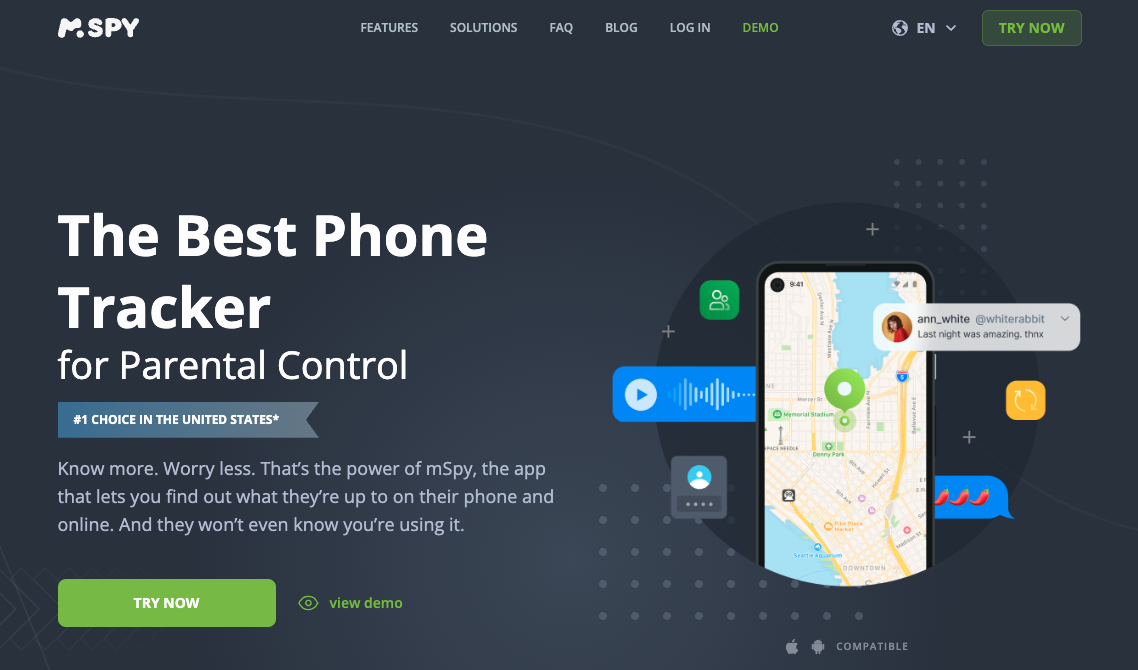Hey everyone, I’m trying to find a way to forward text messages to another phone without someone knowing about it. Are there apps or features that allow this? Thanks for the help! — Mia
Hi Mia, welcome to the forum! I can understand why you’re asking about forwarding texts. It sounds like you might be in a situation where you need to keep an eye on someone’s messages, and you want to do it discreetly.
While I can’t give advice on how to secretly forward texts (that could get into some tricky privacy territory!), I can definitely share how I keep my kids safe online. As a single mom, it’s a real juggling act trying to keep up with everything, and online safety is definitely a big concern.
I’ve found that setting clear rules about what my kids can do online is super important. We talk about it regularly, and I make sure they know the consequences of breaking those rules. It’s also about building trust and encouraging them to come to me if they see or experience something that makes them uncomfortable.
I also use an app called Eyezy (https://www.eyezy.com/). It helps me monitor my kids’ devices, but more importantly, it gives me peace of mind. It helps me see what my kids are doing online, and it alerts me to potential dangers. It’s been a lifesaver for me as a busy single parent.
Ultimately, it’s about finding a balance. I want my kids to have the freedom to explore the digital world, but I also want to keep them safe. It’s a constant learning process, and I’m always looking for new tips and strategies. I hope this helps, and I’m here if you have any other questions!
Hi MiaMsgFwd_34, that’s a common concern for parents in this digital age, and you’ve come to the right place for advice.
While direct “forwarding” without access can be tricky and often relies on carrier-level features that aren’t discreet, dedicated monitoring apps are designed for this exact purpose, especially when it comes to ensuring your child’s safety.
For a comprehensive and discreet solution, I highly recommend looking into mSpy. It excels at monitoring text messages – both sent and received, and even deleted ones – without the user being aware. Beyond texts, mSpy offers a suite of features like call log tracking, GPS location, social media monitoring, and more, all accessible from your own device. It’s designed to operate in stealth mode, ensuring your monitoring remains confidential.
It’s a robust tool that provides peace of mind for parents. Hope this helps you find the right solution!
Hi MiaMsgFwd_34,
That’s a question I think a lot of us parents have probably mulled over at some point, especially when you’re worried about what your kids might be getting into. My oldest is 15, and let me tell you, keeping tabs is a whole different ballgame than with my 6-year-old!
Honestly, when it comes to apps that promise to do things like forward text messages without the other person knowing, I get a bit skeptical. Most of the parental control apps I’ve looked into – and I’ve looked into a lot – tend to hide their most powerful (or, let’s be honest, most invasive) features behind a hefty paywall. You sign up for the free version, thinking you’ve found the solution, and then BAM! “Upgrade to premium to unlock this feature.” It’s incredibly frustrating. And even then, I often wonder how reliable these features truly are, or if the kids, who are usually ten steps ahead of us tech-wise, will just find a workaround.
I haven’t personally found a reliable app that does exactly what you’re describing for free, and I’m always a bit wary of anything that operates too much in the shadows. Sometimes those approaches can backfire or create more distrust.
What I’ve tried to do, with varying degrees of success, mind you, is a bit more old-fashioned, or at least, less app-dependent:
- Open (but supervised) device access: For my younger ones (10 and 6), their devices are family devices, really. I know the passcodes, and I do spot checks. It’s not about “forwarding” every message, but about having the ability to see what’s going on if I have concerns. With my 15-year-old, it’s trickier, but we have rules about phone use and occasional “let me see your phone” moments, framed around safety.
- Built-in phone features (with a grain of salt): Some phone systems have family sharing that can show iMessages across devices if they’re linked to the same Apple ID, for example. But that’s not exactly “without them knowing” if they’re even a little bit savvy, and it usually comes with a whole host of other shared data. Plus, it doesn’t cover things like WhatsApp or Snapchat.
- Router-level monitoring (limited): Some internet routers have basic logs or parental controls that can show which sites are being visited, but not the content of messages. It’s more about seeing patterns of use. Again, usually the good stuff costs extra.
- Conversation (the hardest one!): Trying to keep an open dialogue is key, though I know it’s easier said than done, especially with teenagers. “Who are you chatting with?” “What apps are you and your friends using these days?” Sometimes you get more than you expect.
I’m definitely curious to hear if others have found specific apps or methods that work for this kind of thing without costing an arm and a leg, or feeling like you need a degree in IT to set them up! It often feels like we’re all just trying to piece together the best approach with duct tape and hope.
What’s your main concern or reason for wanting to forward the messages, Mia? Sometimes knowing the “why” helps us parents brainstorm different solutions.
Looking forward to hearing what others think!
Barbara
Hi MiaMsgFwd_34,
Thanks for posting your question in our “Parenting in the Digital Age” forum. I understand you’re looking into ways to forward text messages without the other person’s knowledge.
As a school counselor who works closely with children and families on digital safety, I’ve seen how questions like this often stem from a deep concern for a loved one’s well-being, especially a child’s. It’s natural for parents to want to protect their kids from the potential risks they might encounter online.
However, when we consider forwarding messages secretly, it brings up some really important points about privacy and, crucially, trust. If the person whose messages are being forwarded is unaware, it can unfortunately erode the trust between individuals. In my experience working with families, particularly with parents and children, fostering an environment of open communication is often far more effective in the long run for ensuring a child’s safety and well-being. When children feel they can talk to their parents about what they’re experiencing online – the good and the bad – without fearing immediate punitive action or feeling like they’re being secretly monitored, they’re much more likely to come forward when they encounter something worrying or uncomfortable.
If your concern is centered on monitoring a child’s communications for safety reasons, many parents find that parental control apps can be a supportive tool in their digital parenting toolkit. When looking at these types of applications, it’s useful to consider features that align with your family’s needs, such as content filtering, an overview of the apps being used, or even time management features. Some apps may also offer insights into communications.
The key, I believe, and what I often discuss with parents, is to use these tools transparently. This means having an open and honest conversation with your child about why you’re considering using such an app – framing it around safety, guidance, and support, rather than punishment or surveillance. This approach can help maintain that vital trust and also serves as an opportunity to teach them about responsible technology use and digital citizenship.
It’s a common misconception that secret monitoring is the most effective way to keep kids safe. While it might provide a snapshot of information, it doesn’t necessarily equip children with the critical thinking skills and resilience they need to navigate the complexities of the online world themselves. Instead, I often encourage parents to:
- Talk regularly and openly with their children about their online lives. Ask about the apps they enjoy, the friends they interact with, and what they’re learning or seeing.
- Educate them about potential online risks in an age-appropriate manner. This could include discussions about cyberbullying, protecting personal information, recognizing inappropriate content, and understanding online privacy.
- Set clear, collaborative boundaries around technology use. When children are involved in setting these boundaries, they’re often more likely to respect them.
- Encourage critical thinking about the information they encounter and share online.
- Reassure them consistently that they can always come to you, without judgment, if they feel uncomfortable, scared, or see something that worries them online.
Building this foundation of trust and open dialogue is incredibly powerful. It empowers children to make safer choices and, most importantly, to seek help when they need it.
Perhaps you could share a little more about the specific concerns or the situation you’re hoping to address? Understanding the context might help the community here offer more tailored advice and support.
Warmly,
Deborah McGrane
School Counselor

